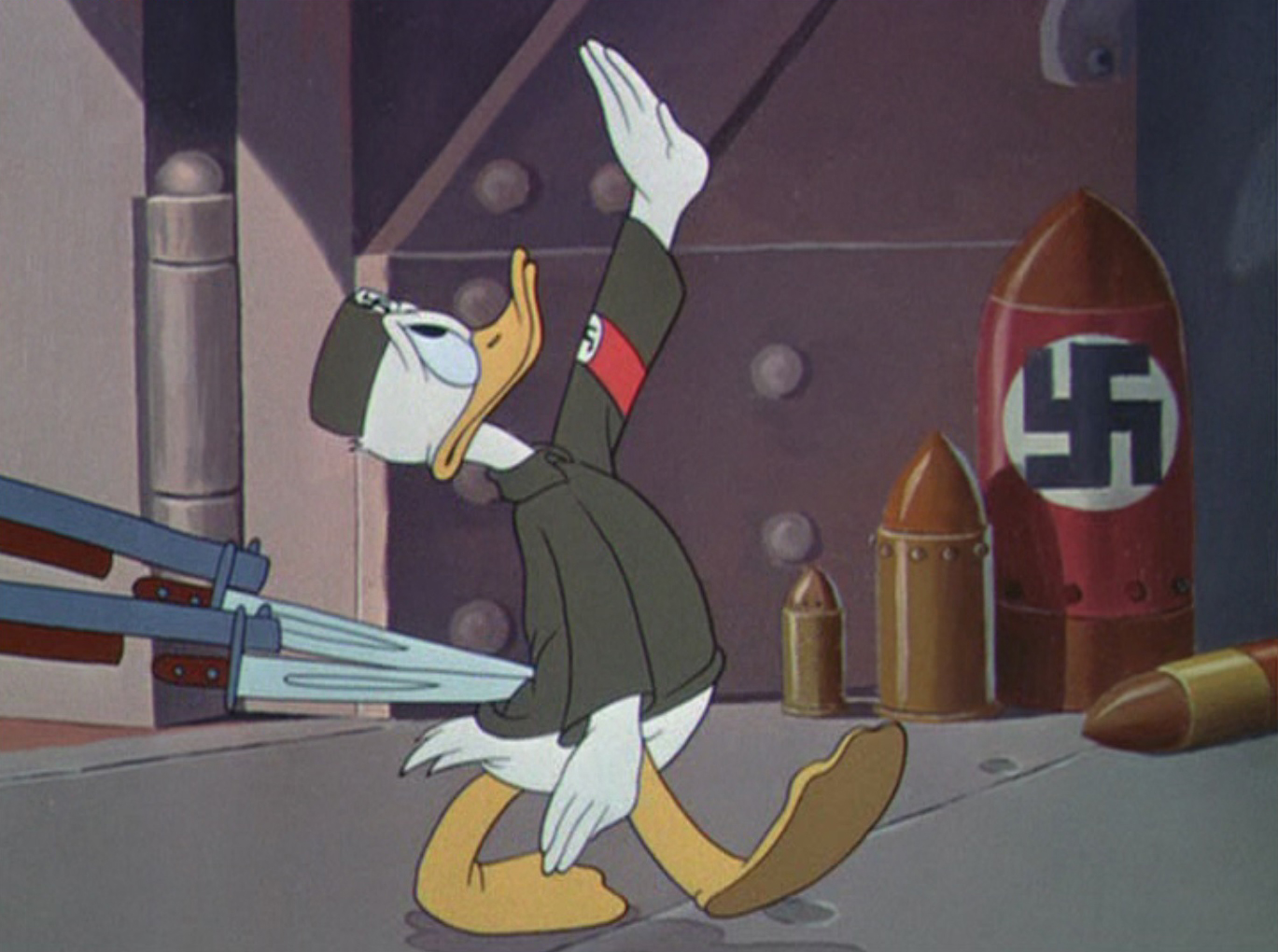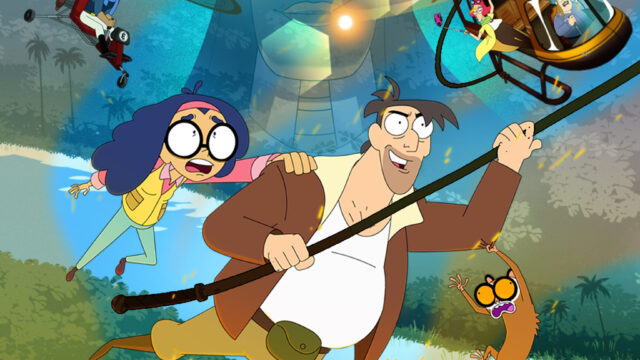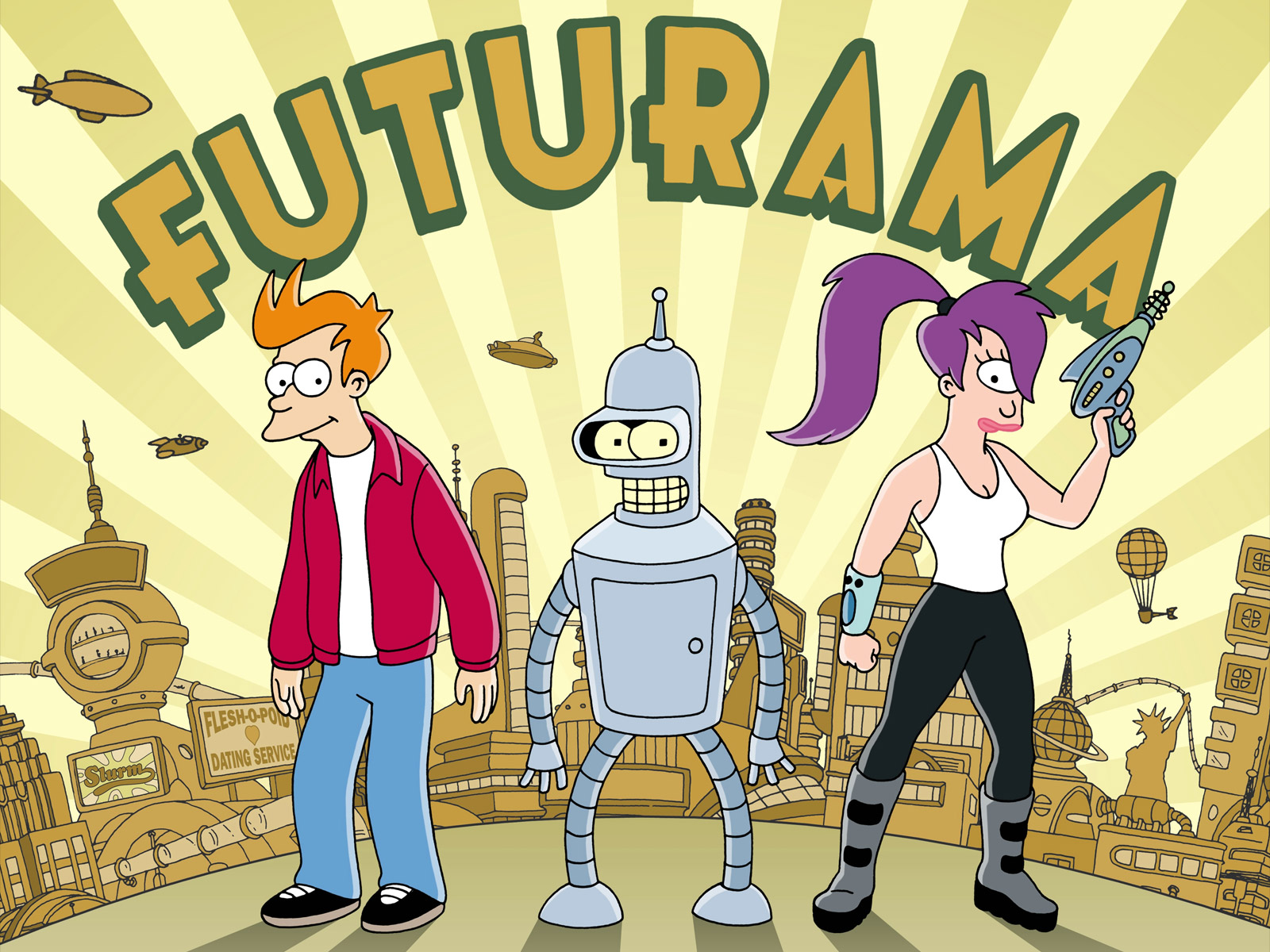When Mickey Met Mussolini, Goofy Chewed Nicotine Gum, and Uncle Walt Owned a Plantation: Three Cartoons Disney Wishes It Had Never Made
Der Feuhrer’s Face

Imagine Donald Duck wearing a Swastika on his arm and quacking “Heil Hitler!” while he’s assembling bombs in a German factory. For any kid that grew up watching Disney Channel, this is probably pretty difficult to do. However, for their grandparents growing up during the Second World War, such a sight was the order of the day.
When the Nazis began to conquer Europe, most Americans weren’t in the mood to fight them. Still mourning the hundreds of thousands of lives lost during the previous global conflict, the average family was unwilling to sacrifice yet another generation of men for the sake of saving a continent that couldn’t go two decades without destroying itself.
Desperate to convince their constituents that this war was one worth fighting, Congress turned to their country’s greatest spokesperson: the film industry. In a series of productions that were far more politically-charged than any entertainment company would dare attempt today, Disney and its rivals made cartoons meant to teach its audiences not to love, but hate.
Aside from cartoons like Der Feuhrer’s Face, whose function was no different from Frank Capra’s documentary series Why We Fight or President Roosevelt’s Four Freedoms speech—that is, to convince people of the fact that a world ruled by Nazis was not one worth living in, Disney also produced cartoons whose message was much more nuanced and complex.
For example, another Donald Duck short, The Spirit of ’43, sees the sailor-suited critter caught in a moral dilemma that is as specific as it was historical: does he give away part of his income, earned in time of recession and whilst living on rations, to pay the war tax which the US government imposes on him, or does he spend it for his own amusement, a desperately-needed luxury in these dark and dreary times?
As both the title and its plot summary suggest, this cartoon was made well into the war, when American troops were deployed in both the Pacific and European theatres. As such, its main purpose was not to motivate soldiers, but their families at home. Here, Donald shows them that paying taxes is not only rewarding because it helps their country, but also because every penny wasted on booze, women and gambling might as well go straight into the pockets of the Axis.























"There are also other characters that come and go (also owned by the Warner Bros. Discovery conglomerate media company)."
Huh. Is that just referring to other characters from the show itself, or is this implying that the new season is going to have cameos from other WBD IPs